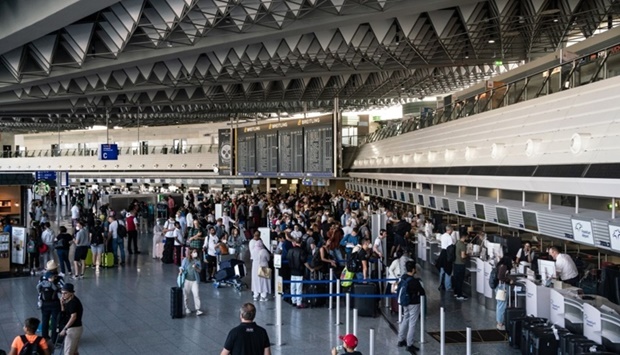| Beyond the Tarmac |
In 2020, when the pandemic was at its peak, the travel and tourism sector across the EU was decimated like other regions of the world due to border closures and suspension of commercial air transport.
Subsequently, the sector reported a loss of almost 1.7mn jobs.
In 2021, when governments began to ease travel restrictions and travellers’ confidence improved, the sector’s direct contribution to the EU’s economy recovered by 30.4% and brought back 571,000 jobs.
The World Travel & Tourism Council (WTTC) and the European Travel Commission (ETC) recently warned that the sector’s recovery could be put at serious risk if thousands of jobs remain unfilled across the EU.
The challenging summer labour shortfall has been revealed by the global tourism body - WTTC - in its latest analysis of the sector and calls for urgent action to address this critical issue.
This year WTTC projects that the sector’s recovery will continue to accelerate and almost reach pre-pandemic levels with an expected 32.9% increase in its direct contribution to the EU economy.
A serious number of vacancies are likely to remain unfilled during the busy summer period, with travel agencies forecast to be the worst hit with a 30% shortfall of workers (nearly one in three vacancies unfilled).
Meanwhile, air transport and accommodation segments are likely to suffer one in five unfilled vacancies, representing 21% and 22% staff shortage respectively.
According to the global tourism body, the UK is expected to see a shortfall of 128,000 jobs, with one in 14 job openings expected to remain vacant.
Restaurants and hotels are struggling to find staff but the UK government, unlike countries like Portugal, are refusing to allow in temporary workers in from oversees.
The UK’s hotel, entertainment, and aviation industries are forecast to be the worst affected, facing unfulfilled vacancies of 18% (one in six), 12% (one in eight), and 11% (one in nine), respectively.
Critical staff shortages are now acute within transportation - particularly across the aviation industry, which is struggling to cope with the post-pandemic travel demand.
Before the pandemic in 2019, nearly 1.8mn people were employed in travel and tourism in the UK, and by 2020, more than 200,000 had lost their jobs.
A new study by the World Travel & Tourism Council (WTTC) has revealed the recovery of France’s Travel & Tourism is at risk as more than 70,000 jobs remain unfilled across the country.
According to the global tourism body, the supply of labour could fail to match the increased travel demand across the sector, which is estimated to be near pre-pandemic levels by the third quarter of 2022.
In 2019, before the pandemic, more than 1.3mn people were employed by travel and tourism in France. But by 2020, nearly 175,000 had lost their jobs.
France saw the beginning of the recovery in 2021, with a 40.6% growth to the sector’s contribution to the national economy. However, staff shortages have been prevalent in the country, with thousands of vacancies that remain unfilled, putting the sector under pressure.
A WTTC analysis shows France’s aviation is expected to be one of the worst affected, struggling to find candidates for nearly one in three (38%) job postings, while travel agencies could also face one third (39%) of staff shortages.
Another popular European destination being challenged due to shortage of skilled hands is Italy.
The recovery of Italy’s travel and tourism could be jeopardised if quarter of a million jobs across the sector remain unfilled, WTTC says.
Its data shows Italy is the most impacted of the European countries analysed, expected to see a shortfall of a shocking 250,000 workers, with one in six vacancies likely to remain unfilled this year.
According to the global tourism body, the supply-demand gap is expected to be even higher during the peak third quarter when the sector’s demand is likely to approach pre-crisis levels.
Before the pandemic, in 2019, nearly 1.4mn were employed by travel and tourism in Italy. But 2020 saw the loss of more than 200,000 jobs.
Italy had a strong recovery since 2021, with a 58.5% growth to the sector’s contribution to the national economy. However, staff shortages have been prevalent in the country, with thousands of vacancies that remain unfilled, putting the sector under great pressure.
A WTTC analysis shows Italy’s accommodation industry and travel agent segment are forecast to be the worst affected, facing more than one third (38%) and nearly half (42%) of unfulfilled vacancies, respectively.
WTTC president & CEO Julia Simpson said: “Europe showed one of the strongest recoveries in 2021, ahead of the global average. However, current shortages of labour can delay this trend and put additional pressure on an already embattled sector.
“Governments and the private sector need to come together to provide the best opportunities for people looking for the great career opportunities that the travel sector offers.”
Pratap John is Business Editor at Gulf Times. Twitter handle: @PratapJohn


